One hundred years ago, on December 27, 1921, a baby boy was born to Onofria Terrana and Giovanni Brunogallo, in their tiny stone house on Via Chiasso Cavallo, Number 27, in Grotte, Sicily. This baby would grow up to be my papa, my dad, my foundation.
Though born on December 27, 1921, my dad’s birth was not registered until January 6, 1922. My grandparents bundled themselves in their warmest clothing, swaddled their newborn in many layers and, together, they walked over to the Town Hall to register their son’s birth. This was required by law. From my understanding, both parents had to be present along with the infant, unless one of the parents was ill. They had to physically show the gender of the child and declare the date of birth.
My dad always talked about how his parents saved his life by registering his birth as January 6, 1922 instead of the real birth date of December 27, 1921. My dad was drafted into Mussolini’s army in 1940. If his parents had claimed his true year of birth as 1921, my dad would have been drafted one year earlier and would have fought during the deadliest year of WWII in Italy, 1939. With such heavy casualties in Italy that year, my dad believed he most likely would have been killed in combat. By proclaiming a later birth date, my grandparents bought their son an extra year of time. I will never fully understand how they had the foresight to claim his birth in January rather than the preceding month (and therefore, the preceding year), but I know of our various Sicilian male relatives, born around the same time as my dad, whose parents claimed the official birthdays of their sons to be weeks after the true birth date. This never happened with the female children.

My dad had blond hair as a baby. That’s my dad, Calogero, with his parents.
In 1974, my father started writing a journal, a retrospective of his life. This journal is my treasure. Most of the writing is in Italian, but many words are Sicilian. He did not complete his project. I know he meant to write more because he numbered the pages to 300, though he only filled about half that number of pages. His script is so beautiful. I have translated the entire journal and some day will write a book about my dad’s life. Here is a sample of my dad’s original writing and my translation.

I, the author of all that is written below, Calogero Bruno Gallo, was born in Grotte on the 27th of December, 1921. My birth was registered as the 6th of January, 1922. I was born in Via Chiasso Cavallo, Number 27, Grotte, Province of Agrigento, Italy.
I would like to declare, by writing my diary, my thoughts about my life and about my family. I remember that my Mamma and my Papa, good souls that they were, used to tell me that when I was little I was always sick and I had throat problems (I had a lump in my throat) and my throat was operated on. I still have the scars on my throat from that surgery. I had many other illnesses and my poor Papa and my poor Mamma had to work really hard and had to sacrifice their lives for me so that they could help me survive my early years, years that I was too young to remember. But I do remember that when I was 8 or 9 years old, my grandfather used to bring me to his farm (his campagnia) so that I could spend “beautiful” summer vacations with him (or so he called them), but for me these “vacations” were really hard. My grandfather (maternal grandfather) and my 4 uncles made me work like a slave. Every day I had to go fetch water from the fresh water spring. Then I had to go and collect all the fruit that fell from the orchards and I had to bring it all to my grandfather. Then I had to cut the leftover wheat and make hay bales (for animal feed), placing the hay bales under the pear trees.
My father goes on to say how his cruel grandfather made him work from morning to night, fed him a bit of bread, and made him sleep under the stairs on the ground, without a pillow or mattress, without a sheet to shield him from the mosquitoes. His whole life, he could not forget the hard floor and the mosquitoes buzzing in his ears. It’s hard to understand how someone could be so cruel to a child. My father never told his parents about this terrible treatment because, he said, he knew his mother would be very upset and he didn’t want to create disharmony within the family!

Dad (standing on the left) with his mother (seated on the left, directly in front of her son), his sisters and family
There’s so much to say about my father and his life. He was a great story teller! Luckily, my nephew John recorded many hours worth of my dad’s storytelling from his military days. He often spoke about his dream of becoming a policeman. An unrealized dream because, unfortunately, a background check revealed that one of my dad’s distant relatives was involved in the mafia! My dad told stories about farming, about growing up with his sisters, about meeting my mother, about working in the coal mines, about immigrating to America, about working long hours in his sister’s restaurant, Isle of Capri, in Gary, Indiana, as a bartender until he learned English, about walking miles in the snowy frigid winters of Indiana until he saved enough money to buy a car.
His stories of being in the war are worthy of a movie, a riveting and unbelievable true story in which he lived more than nine lives.

(Above: Dad is the young man on the right. I found this photo at my Aunt Lily’s (long before she died). I had never seen it before. She said this is a photo of a farming family on the mainland, in Southern Italy, who took my dad in for a while -before, during, or after his military service?- She said the parents loved him as if he were their own son and he kept in touch with the parents until they died, which would be before I was born. This photo fires my imagination. I love this photo. )
If you met my dad, you would notice his year-round deep brown skin and his cat-like green eyes. The first thing he would ask you, after offering you a glass of his homemade wine, is this,
You know how long-a one man-a he can live with no food?
His soft pudgy audience would have no clue how to answer this question, so dad would supply the answer:
A least-a least-a, eighteen days!
And then he would launch into his harrowing story of survival during the WWII.
And, why did he fight in Mussolini’s war? Well, my father explained that if a young Italian man refused the draft, then that young man would be imprisoned and his father would have to fight in his son’s place. It is doubtful a good son would do that to his father.
My dad was a quiet man. He rarely swore and would be horrified if he knew how my mom spoke to us children when he was at work. Mother was sometimes irritated, angry, or frustrated with us five children and she had an arsenal of rough-edged vocabulary. We learned all the bad words in Sicilian from her.
Dad was hardworking. He always had two jobs. He was not afraid to work hard. His health was not good because he had Black Lung disease from working in the Belgian coal mines. He loved dogs and had to beg my mom to let us have a dog. She eventually gave in. Twice.
He had a childhood dog he always talked about. The family was so poor that one day his father announced, “We have to get rid of the dog.” The whole family started crying, including grandpa who had made the announcement. In tears, grandpa brought the dog over to a farmer who butchered pigs and cows. Grandpa figured there would be scraps for the dog to eat and came to an agreement with the farmer. He came home without the dog and the whole family was sullen. It was bad enough to be poor and worse yet to have to get rid of your dog because you can’t feed him. About a week later, the dog showed up at the house, wagging its tail. My grandfather rushed over to the dog and held him tightly in his arms and said with trembling voice, “Ok, he stays!” And from then on, they divvied up their food between parents, children, and the dog. My dad told this story with quivering lips. He told this story often and I was equally moved each time.
When my dad’s second born daughter, Toni, came down with meningitis, he watched helplessly as she almost died in the hospital. After Toni’s fever subsided and she was left with brain damage, my father took her to several specialists, just as his parents did for him. He first took 18 month-old Toni from the hospital in Liege, Belgium to a specialist in Brussels. When they were unable to help, he took Toni to a specialist in Milan where they stayed a week and Toni underwent examinations. He never left her side. When the Milanese doctors were unable to help Toni, my dad took his baby girl to Paris. There they stayed a few weeks, while doctors examined Toni and where we underwent a battery of tests. When the Parisian doctors could do nothing for Toni, dad took his baby girl to London. Niente! Nothing! It seemed there was no hope. My dad had spent all his savings and went back to do double shifts in the coal mines. (Toni went on to live with intellectual disabilities until she contracted COVID-19 in November of 2020 and died five months later. )

Dad with baby Toni
He had a hard life and a beautiful life. He was honest, gentle, sensitive. He was quiet and rather shy. He had a few really good friends and they were his friends for life. He cried easily while watching movies. He couldn’t even mention his mother’s name without a quiver on his upper lip. He adored his mother. He helped raise his sister’s kids. He danced and sang beautifully. He loved opera, but I never knew him to attend an opera. Instead, he listened to his record albums of opera and folk music from the old country. He loved to watch movies. He loved to drive and we spent vacations on road trips, usually driving to our relatives’ homes in New York or Canada. He raised rabbits and pigeons. He gardened and produced enough vegetables to feed our family of seven. He was generous and sensible with money. He was deeply intelligent. He was very good at math. He liked to read the newspaper. He received the daily newspaper in English and another weekly paper in Italian. He loved his coffee in the morning and he liked to drink cold beer in the summer. He made homemade wine, cheese, and sausage. He ate with gusto. He didn’t like sweets, but he loved fresh fruit. His weakness in life was bread! He simply could not eat if there was no bread on the table. Second to bread, he loved meatballs. He once almost died for want of meatballs. Yes, that’s a fact and all these stories will have to go into the novel I will write when I am too old to teach and have all sorts of free time on my hands.

Dad dancing with Nora (his eldest daughter)
It is hard to believe that my father completed only an eight grade education. He gave us what he wished for himself: higher education. He put me through college. He was protective of us girls and scared away any potential dates in high school. He was not too tall, around 5’10”, but he was heavy boned and muscular, built like an ox.
He loved my mother deeply. He was romantic and, for no reason, other than the fact that he loved her so, would randomly bring her a bouquet of flowers. He knew she had a sweet tooth, so he would also bring home Fannie May chocolates and Dunkin’ Donuts.

It seemed he could never do enough for us. He was proud of us kids and I always felt growing up that I could never measure up to his goodness. I still don’t think I can ever measure up.
His birth name was Calogero Bruno Gallo, but when he immigrated to America, there was no English cognate for Calogero, so he was renamed Charles and went by Charlie. My mother called him by his Sicilian nickname, Lillo or, shorter yet, Li (pronounced like Lee). His last name was shortened to Gallo. He took on a new identity. He learned English quite well and loved his adopted country. He was forty-one years old when I was born.
Though he had the coal miners black lung disease, medically known as pneumoconiosis, he lived to be 85 years old. His lung condition never stopped him from working hard. He survived a brief stint of being a prisoner of war (mentioned in his journal but never talked about), the death of his firstborn child and only son, at least one explosion at the coal mines and one cave in (yes, there are stories he has told us about these incidents), and a quadruple bypass surgery at age 80.
I was lucky enough to be with him when he died. And when he died, the last words on his lips were, “I love you.” He said these three words as he looked at us, his family members. Nora and I still talk about that moment in time.
I cannot imagine a more beautiful parting gift. Here’s to one of the men of the Greatest Generation. I think about him nearly every day. He is always here, inside the fabric of my being.


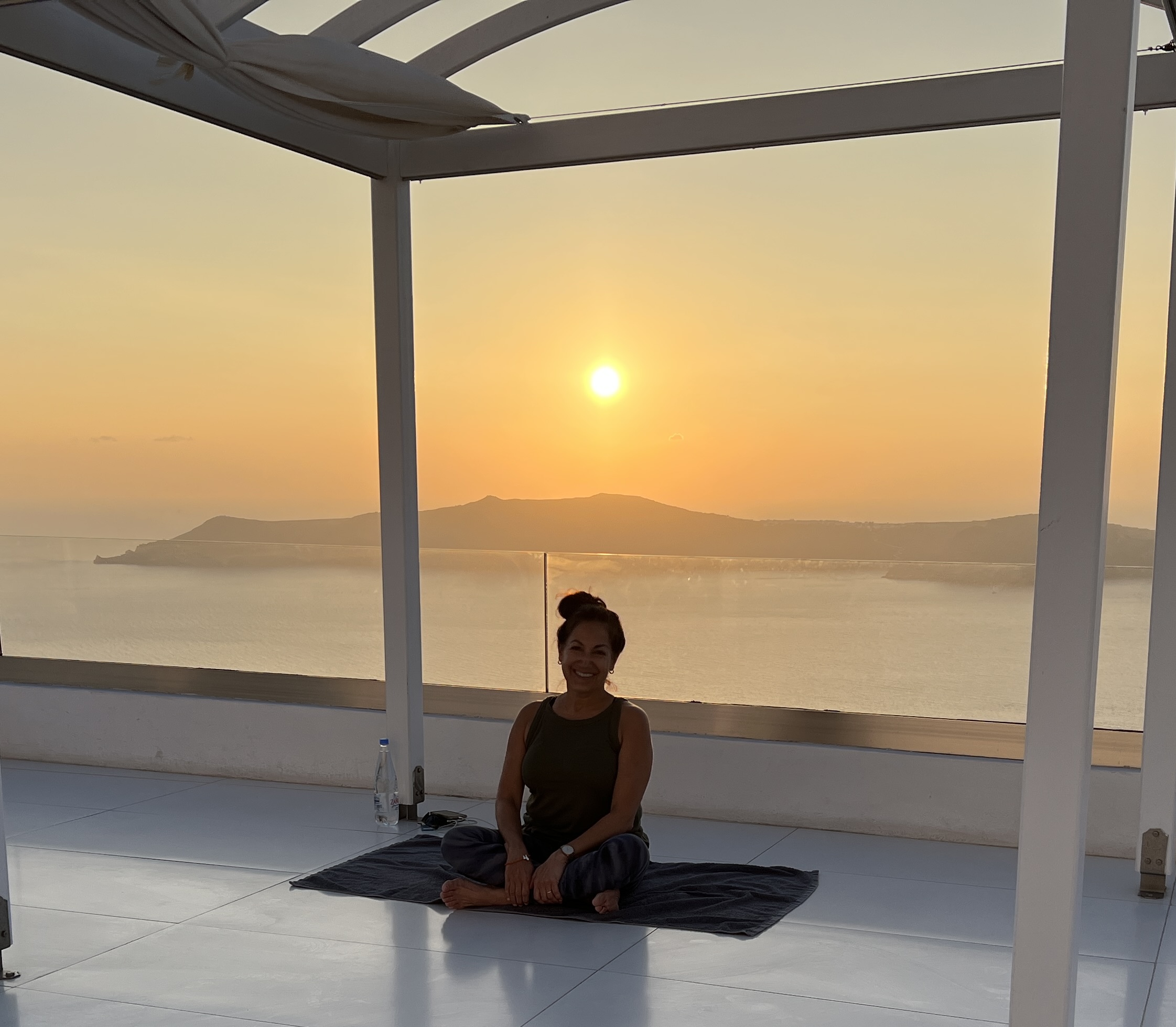
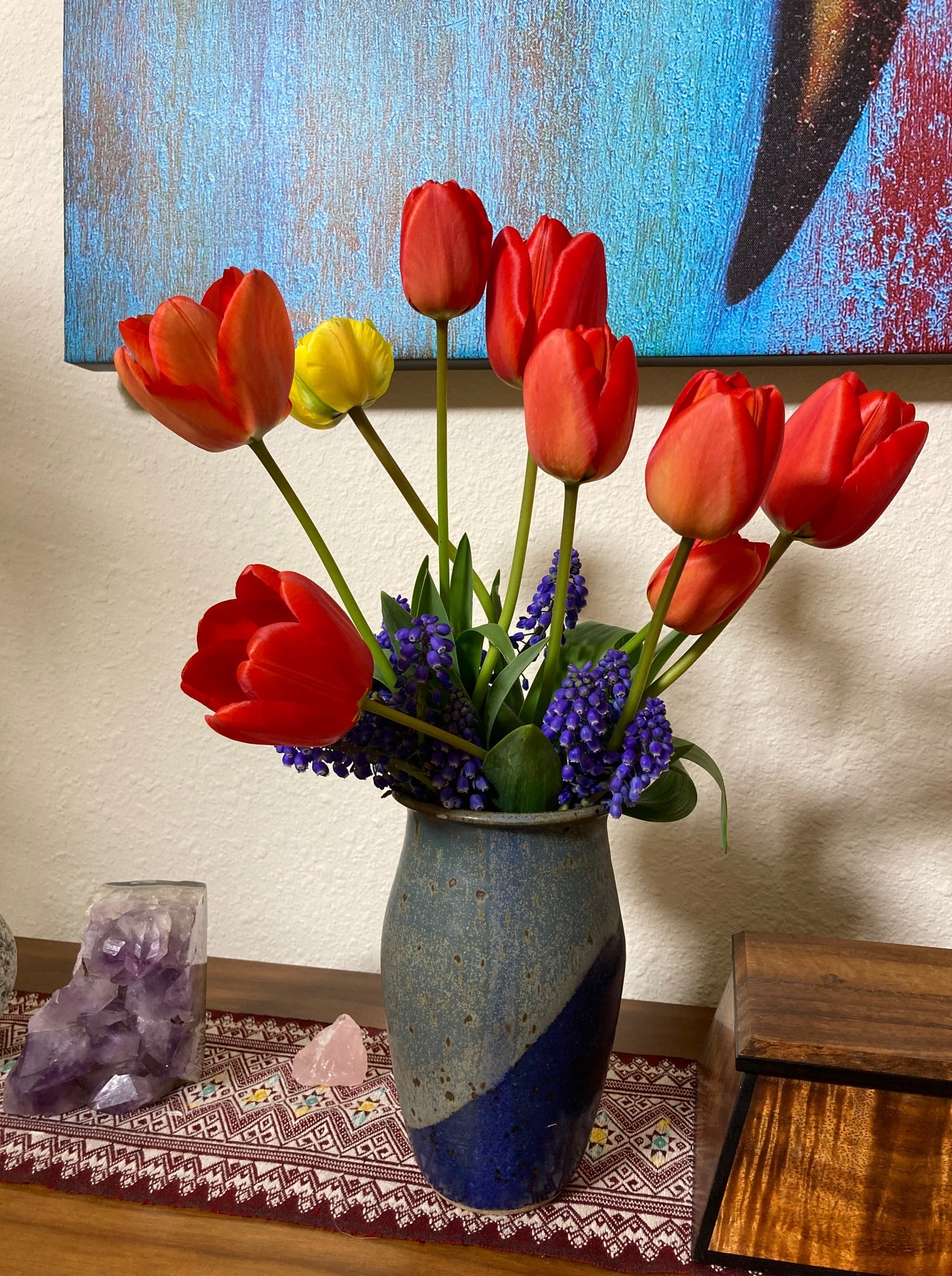
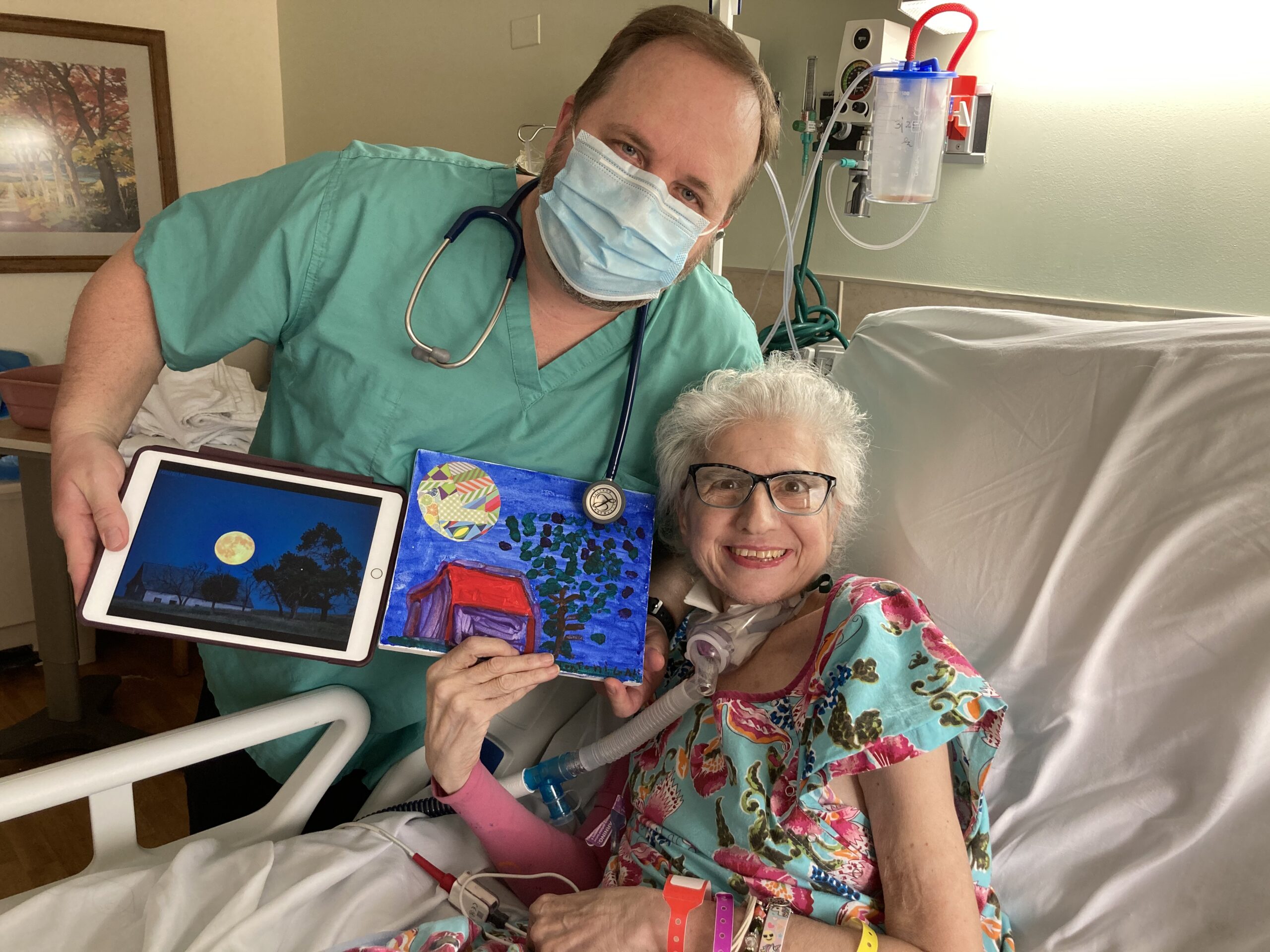
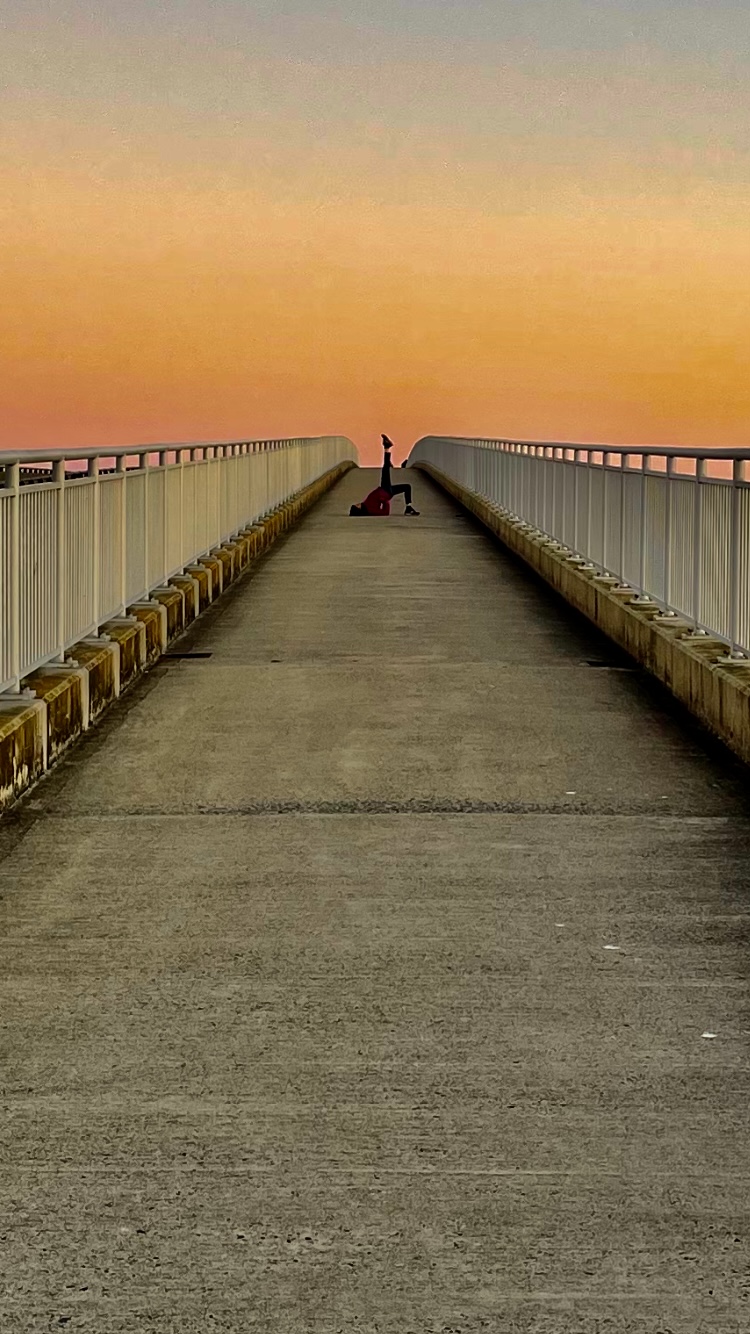
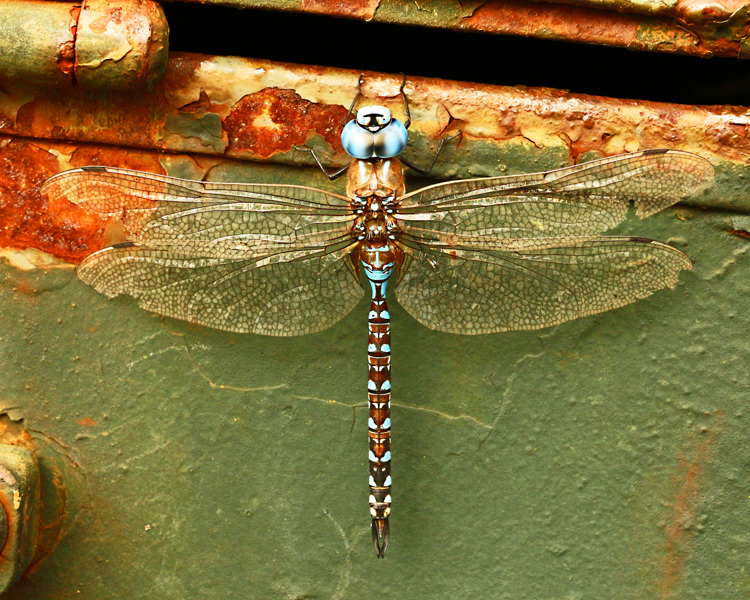
Oh Fran this is so very touching and loving! This made me cry as I too had a special bond with my “Papi” (dad). You are such a great writing and I know that you DID measure up and he is so very proud of the women you are!! I am honored to call you friendf!
Te amo,
ceci
Thank you, Ceci! I know you had a special bond with your Papi, too! How lucky we were. Thank you for your comment. Love you back, Fran
Very, very touching, Fran. Thank you for sharing the details, the pictures, the humanity and the inspiration of your father’s life. I would’ve loved to have met him.
Thank you, Ricardo!! I will be in touch soon regarding your long email. Sounds like you are doing great. And yes, my dad would have enjoyed talking to you. Namaste, Fran
You DO have a gift, Fran. One of those gifts is a way with words, whether written or spoken. Your way with words helps to bring alive your father and the life he shared with you and the rest of your family. Your way with words also brings your yoga students alive as you teach. Thanks for sharing with us the richness of your family life. This very evocative and loving entry about your father on the centennial of his birth is a very good example of the richness you share with others daily. Your father quite clearly lives on in you.
Liz, your words mean the world to me. Thank you. I look forward to sharing more and more through my teaching and through my writing. Happy New Year to you. Namaste, Fran
I LOVE the stories of your family … your parents had such a rich ethnic Italian history! I am in awe with your knowledge of your family’s life stories … I wish I had asked more questions while my family was still alive. Your family knowledge says a lot about who you are, an inquisitive, sincere and caring listener with a huge heart.
Hmmm … I miss the stairs for this reason 🙂 !!!
Thanks, Jeri! The problem is that youth don’t really think to ask these questions and then we are left wondering later on. My dad openly shared his life stories, even without our asking, so that we were able to envision a rich mosaic of his life and of our Sicilian roots. Missing you and our stair climbing days. I have a feeling we will find another way to work out together. Let’s work on that this new year! Love and Namaste, Fran
Thanks for the posting of Grandpas birthday and moving the day of birth to January 6 to allow him to be drafted one tear later. I brought up the story of it being Papas birthday at dinner at Bob and Donna’s. I look forward to seeing the journal and book in the future. I loved hearing about some of his adventures, army stories, etc. when mom, Angie, Chuck and I drove to St. Louis one trip to visit Aunt Zina.
OH, Grandpa loved you! You were his first grandchild and so very adorable! Love you, Aunt Fran
This post is so beautiful Fran, brought tears to my eyes! I have that in common with dad, we used to watch movies together finding ourselves crying at the same time.
Don’t wait too long to write that book! You will never be too old to teach, just teaching fewer classes.
Love you, Nora
I will. Just got to figure out the time thing! Fewer classes! Now, there’s a concept. Thanks for the idea! I’m glad you got dad’s easy flow of tears. Love you, Fran
I loved the story of you father, Fran. I would have loved to meet him. Just beautiful!
Thank you, Tone! You would have enjoyed my father. And you would have enjoyed tasting his wine! He was very soft spoken, but he liked to tell stories. love, Fran
I loved reading this, made me think of my own father. Thank you for sharing this story.
Thank you so much for sharing these stories about your father & family. It brings back memories of my father who though very different than yours had the same values and love of family.
Thank you, Merry. They were of the Great Generation and their values and their love of family was extraordinary!! Happy New Year to you and Bob!! Namaste, Fran
What a remarkable man! Thank you for sharing his story with us, Fran. Your writing flows from your heart and compels the reader to want more! Get going on this project! Your a talented story teller just like your father and this piece is the start of a wonderful memoir!
I wish I had just a few more hours in each day…will have to be more efficient in my time and how I use it…setting aside time to write in the new year. thanks for the inspiration!
Oh Fran, these stories bring me back to the days when our families would get together in your mom’s basement. I remember uncle Charlie well. He was such a soft-spoken, kind and genuine man. You need to write that book about him… make the time now to write it. Don’t wait until it’s too late and your vivid memories begin to fade. I know I will be one of the first people to purchase that book! Good luck!
You remember your Uncle Charlie well! And he and your dad compared notes on wine making and on gardening! I will write that book…but first there are others to write. I just made out a chart and will set aside one day a week to write….
I agree with Tina above that you will never be too old to teach!! So, yes, start carving out that time now to write. And you enjoy writing so much. It’s a generous gift to yourself and will be to others as you publish what you write. Put it on your calendar each day. Such a beautiful story about your dad!! It’s where you get your amazing generosity of spirit and the stamina you have to do so much for everyone in your life each day. Thank you for all your gifts to all of us who love you, Fran.
OK….must carve out time for these writing projects!! Thank you, Bev.
Beautiful! I wish I could have met your father. I definitely want to read your book about him! And I love the old photos. René
Hi René. I hope you will get to know my father more when, one day, I write that book! The old photos are priceless. They are also in poor condition, as I found them, but they are my treasures.
I have no doubt your father would be so proud of you – your ability to help others, your generosity of spirit, and your amazing skill at sharing his life story with others. What a gift to those of us who read this. Thank you,
Thank you, Linda.
Beautiful post, Fran, of an amazing man. And by the way, you will never be too old to teach, so you might as well start writing that book now. 😉
I will have to start carving out more time for my writing projects! I have a few others on the front burners…but I will write this sooner than later. How’s that???